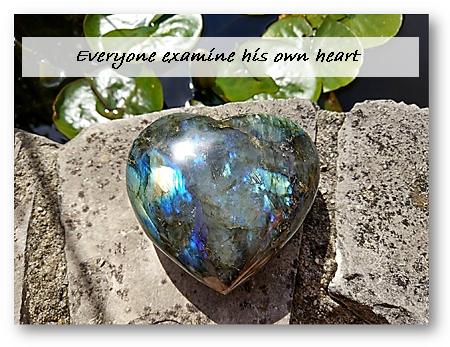How We Engage in Self-Examination
How We Engage in Self-Examination
Examine yourselves, whether ye be in the faith; prove your own selves.
2 Corinthians 13:5

Self-examination is a vital aspect of the Christian life. In his book Advice to A Young Christian (SGCB, 2006), Jared Bell Waterbury writes,
The conscientious Christian should not suffer a single day to pass without an investigation of his moral character.” He goes on to state that “were long intervals to occur between the periods of self-examination, we should indeed experience much inconvenience and perplexity in performing the duty. We should then resemble the unskillful and heedless merchant, who, yielding to habitual negligence and hurry, defers posting his books until he is overwhelmed with their intricacy and magnitude. But let the duty be daily and thoroughly performed, and we rise to the standard of the skillful and prudent merchant, who duly records every item of business; who never closes his counting house, until his balance sheet is made up; and who, by a single reference, can tell the true state of his accounts, and form a correct estimate of his commercial standingpp. 83-84
But how are we to do this? How are we to engage in proper self-examination? The first part of the Form for the Administration of the Lord’s Supper published in The Psalter (Eerdmans, 1927) provides some helpful suggestions. The form states that the true examination of ourselves consists of three parts:
First, that every one consider by himself, his sins and the curse due to him for them.
Here we learn that in order to examine ourselves properly we must know something of our sin. We must acknowledge not only that we have sinned, but that we are sinners and therefore deserve God’s wrath and condemnation. This knowledge, in turn, should cause us to “abhor” and “humble” ourselves before God, considering that the wrath of God against sin is so great “that (rather than it should go unpunished) He hath punished the same in His beloved Son Jesus Christ with the bitter and shameful death of the cross.” In other words, we must also realize the seriousness of our sin. Our sin is so great that it cannot be ignored. The penalty must be paid and the only way it can be paid is through the death of God’s Son, the Lord Jesus Christ.
The second part of self-examination according to the form is that,
everyone examine his own heart, whether he doth believe this faithful promise of God that all his sins are forgiven him only for the sake of the passion and death of Jesus Christ, and that the perfect righteousness of Christ is imputed and freely given him as his own, yea, so perfectly, as if he had satisfied in his own person for all his sins and fulfilled all righteousness.
Here we confess that the true Christian is one who is actively looking to and casting himself upon the Lord Jesus Christ – His active and passive obedience – as the only hope and ground of his salvation. The word “only” is important. The true Christian is not trusting in Christ plus something else (his sincerity, his experiences, his religious devotion, his good works); he is trusting in Christ and Christ alone.

The third part of self-examination is that,
every one examine his own conscience, whether he purposeth hence forth to show true thankfulness to God in his whole life and to walk uprightly before him; as also, whether he hath laid aside unfeignedly all enmity, hatred, and envy, and doth firmly resolve hence forward to walk in true love and peace with his neighbor.
Here we have the ultimate proof that we are a child of God: is there evidence of a changed life? Are we putting sin to death and are we striving – by the grace and power of the Holy Spirit – to live to the glory of God in all things by keeping His commandments?
For many, this is very difficult to assess. They can say that they know they are sinners before God and that their only hope of salvation is in Jesus Christ. They can even speak of looking to the Lord in faith. But when it comes to living a life of holiness, they often see so many shortcomings. This can lead some of God’s children to doubt whether they are truly saved or whether they are only deceiving themselves. But we must remember, as the form goes on to state, that what distinguishes a child of the Lord from someone who is not is that the child of the Lord feels sorry for these weaknesses and shortcomings and is,
earnestly desirous to fight against (his) unbelief and to live according to all the commandments of God.
Where this is the case, we have no reason to doubt our salvation. Where this is not the case, we are still in our sins. Which is it for you? Examine yourself whether you are in the faith!

Add new comment